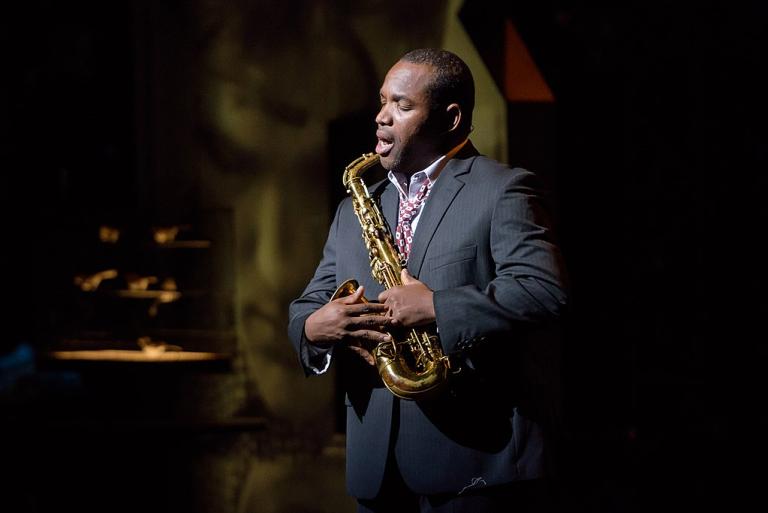Creativity today is usually associated with “thinking outside the box,” inventing new ideas by throwing out conventional ways of doing things, and expressing what’s inside without letting your mind get in the way. Actually, though, creativity happens as a function of acquiring objective knowledge and mastering technique.
This is proven by both educational research and by studying people who actually are creative. This is the subject of Daniel Buck’s essay for Quillette entitled What Progressive Educators Get Wrong About Creativity.
He shows that the view of creativity favored by the educational establishment derives from 19th century Romanticism. That movement not only exalted the self and minimized objectivity, it idealized childhood as a state of emotional spontaneity unspoiled by society’s rules. “From this view” Buck writes, “the child’s mind is inherently creative and traditional schooling only snuffs out that inventive spark; if we simply allowed the child’s mind to unfold like a flower, creativity would flourish.”
Buck notes that defenders of this position will cite research that shows, for example, that if you give children a paperclip and ask what they can do with it, they will come up with far more uses than an adult can. Thus, they conclude, children are innately more creative than adults are. In this view, creativity requires “divergent thinking,” thought that goes every which way, whereas adults practice a restrictive “convergent thinking.”
Buck points out, though, that children can come up with so many uses of the paperclip because they don’t know what it is for. “Convergent thinking—thinking along predefined paths typically associated with truth—naturally comes with adulthood,” he writes. “We learn objective truths and cultural norms that confine our thought.”
Buck cites studies that show that genuine creativity in any area begins with knowledge of the field (which is necessary in order to add anything new to that field) and learning the techniques of that field (so as to bring into existence the new creation).
This knowledge-dependent approach to creativity has been demonstrated in research. In one study, the authors affirm that great artists develop their capacities through “encounters with others’ artworks,” allowing “artists [to] create their own original artworks and expression styles.” . . .
Or consider Sweller’s analysis of the existing research: “There is a large body of evidence indicating that students learn to solve complex, novel problems more easily by studying worked examples that demonstrate possible solution steps rather than solving problems themselves.” It’s through explicit explanation and guidance through problems—even problems with the solutions explicitly laid out—that students develop the capacity for critical and creative thought. They need models and guidance, not haphazard experimentation or kitschy creative thinking activities from which they may learn nothing.
What I most enjoyed from Buck’s article is his discussion of specific people known for their creativity. As has long been observed, experimental artists like Picasso and Dali mastered classical drawing before launching off into their experimentations. He includes a video of Paul Simon explaining how he wrote “A Bridge Over Troubled Water” by starting with a melody from a Bach chorale, then adding some blues chords, and working off of some lyrics he heard at a concert.
Even creative improvisation requires, first of all, technical mastery. The great jazz saxophonist Charlie Parker practiced 12 hours per day, playing scales, hitting long notes, and rehearsing riffs and licks. He had to practice these basics over and over again so he could put them together in a performance, so that he could play them fast and automatically, turning them into something new.
I would add that the same principles of knowing your field and mastering its techniques apply not just to artists and musicians but to creative scientists and engineers, as well as to creative people in business and the trades.
Buck concludes, quoting once more educational psychology John Sweller,
Educational progressives conflate the two competencies, observing the natural play and joyful learning that occurs in early childhood and arguing that such experiences must occur indefinitely. When in reality, according to Sweller, “biologically secondary, domain specific knowledge needs to be explicitly taught or it will not be acquired [emphasis mine].” For our students to acquire the knowledge and honed skills for creativity, it will take the structure and order of a traditional classroom. It’s not enough that children free write or mind map; they must encounter the best that has been thought and said. It is only after years of wrestling with the works of past geniuses that children can become eloquent, insightful, critical adults.
Buck is the author of What Is Wrong with Our Schools? The Ideology Impoverishing Education in America and How We Can Do Better for our Students.
I don’t know if he is aware of the classical education movement, just judging from the “look inside” feature on Amazon, but he diagnoses well the problems with contemporary education and makes the case for what he calls “traditionalist” teaching. In doing so, he is basically describing what our classical Christian schools are doing.
To close on a theological application, only God can create ex nihilo. Those of us created in His image can make what Tolkien calls “sub-creations” that emerge from what He has made.
Photo: Charlie Parker, Feast of Music from New York City, United States, CC BY 2.0 <https://creativecommons.org/licenses/by/2.0>, via Wikimedia Commons














